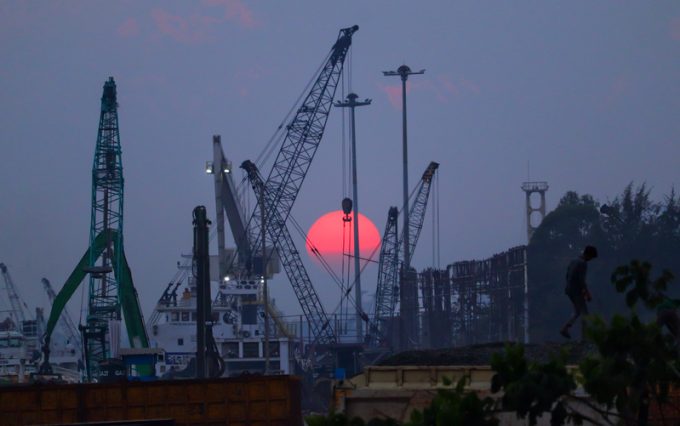India ready to lower US tariffs in exchange for concessions
India has agreed to the US Terms of Reference for the bilateral trade agreement, after ...

Shippers using Bangladesh’s Chittagong port fear there is not enough capacity, following the country’s decision to open its two seaports, Chittagong and Mongla, to Indian domestic cargo destined for seven states in the north-east.
Bangladesh Customs on Tuesday issued an order allowing India to start regular cargo routes through Bangladesh for goods to feed people in the hilly northern region, where both industrial and farm production is lacking.
India will send the majority of goods from neighbour state West Bengal, using Chittagong ...
'Disastrous' DSV-Schenker merger would 'disrupt European haulage market'
New senior management for DSV as it readies for DB Schenker takeover
Volumes set to 'fall off a cliff' as US firms hit the brakes on sourcing and bookings
Asian exporters scramble for ships and boxes to beat 90-day tariff pause
Amazon pushes into LTL for small package fulfilment and UPS does a u-turn
Temporary tariff relief brings on early transpacific peak season
Pre-tariff rush of goods from US to China sees air rates soar, but not for long
Forwarders 'allowing the fox into the chicken run' by supporting 'hungry' carriers

Comment on this article
Pichuiyer Balasubramanian
April 28, 2023 at 3:59 pmBangladesh should use this as a golden opportunity to expand both ports and thus increase the throughput, benefitting all the parties.